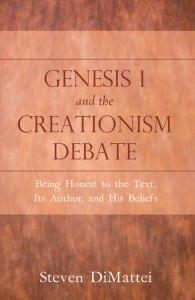I created this blog as a forum to write about, share, discuss, and ultimately educate the public on biblical topics related to my current book projects—an attempt to gauge, and engage with, public reaction, comments, concerns, and even questions. At present there are two books that I’m busy working on: What is the Bible and How Did It Come to Be? and The Bible’s Many Authors and the Contradictory Texts They Left Behind. As these titles indicate, I’m most interested in the textual history of the Bible: When were these texts written, by whom, and what political, religious, and literary circumstances prompted our biblical authors to write what they did and to whom? How and why were these texts adopted, modified, edited, and even reinterpreted by later generations of readers? What historical (i.e., political and religious) circumstances brought this about? How, when, and why were these texts transmitted, collected, and finally labeled as “the Bible” by later generations of readers? Lastly, how does this later label, “the Bible” which means Book, affect our reading and understanding of these earlier, once separate, texts? These are merely some of the questions that I’m currently interested in. As a scholar of the Bible my aims, both with this blog and my forthcoming books, are ultimately to educate the public about the compositional nature of the Bible—our lead-in questions being: What is the Bible? Who wrote the Bible and when? How and why did the Bible come to be? Granted, the relationship between biblical scholars and the public has not always been fruitful, unfortunately. Nevertheless, I wish to foster a dialogue between us who academically study the Bible in its historical and literary contexts, and you who revere the Bible as the central element of your faith [read more: The Biblical Scholar and the Public].
On that note, I add the following. This blog is not intended as a forum for me to verbalize about my opinions, beliefs, or rants. It is devoted to, for lack of a better word, the scientific study of the texts that went into the making of the Bible, including both an understanding and acknowledgment of their historical and literary contexts. It is solely created as a forum to share with the public what biblical scholars have discovered about the Bible, what textual evidence backs up their claims, and what this all might mean for the public; it is an attempt to create and foster public dialogue and public awareness about the Bible. Having said that, I might also add that I am much less interested (at least here) in what a particular interpretive tradition says about the Bible, what so-and-so claims the Bible is, what such-and-such faith-community believes the Bible to be, etc. It is rather the biblical texts themselves that will interest us here—listening to what the texts themselves have to say, and when possible understanding why they say what they say vis-à-vis their historical and literary contexts. Defending the biblical text(s) is our goal here, even if this means at times going against the text’s interpretive tradition(s). [read more: The Bible and Its Interpretive Tradition].
Finally, everything biblical is a forum dedicated to educating the public about the Bible, about its many (and at times competing) textual traditions, about these texts’ historical and literary contexts, authors, audiences, and purposes of composition. Given that the Bible is a composite text, i.e., it is composed of numerous texts and traditions which were individually written over a period of roughly one-thousand years by varying authors and for varying audiences, educating ourselves about the Bible is no meager task to be slighted or taken for granted. It requires linguistic, literary, historical (i.e., religious & political), and archaeological knowledge of vast periods of time, of varying geo-political worlds and worldviews, of an enormous ancient Near Eastern and Greco-Roman literary corpus, etc. I humbly invite you to join me in this learning quest. I will try to write posts on a daily basis, and at the least multiple entries on a weekly basis.





